Sardinia is an ancient land, rich in history and traditions. The various dominations it has undergone, together with its geographical position, have contributed to the development of Sardinian culture: complex and fascinating, with original yet conservative traits, clearly visible in its people, who hand it down with pride.
The art, culture and traditions of Sardinia frame enchanting places that have always enchanted tourists. The many beautiful beaches, each one different from the next, are immense expanses where white sand and pebbles alternate with rocks of the most imaginative shapes. In addition to its exciting sunrises and sunsets, undulating landscapes and art-rich villages, Sardinia is ready for you to discover rituals and traditions handed down through generations that will immerse you in a magical atmosphere. Are you ready for the journey?

Sardinian culture between history and traditions
🥇 Visit Italy’s brand partnership
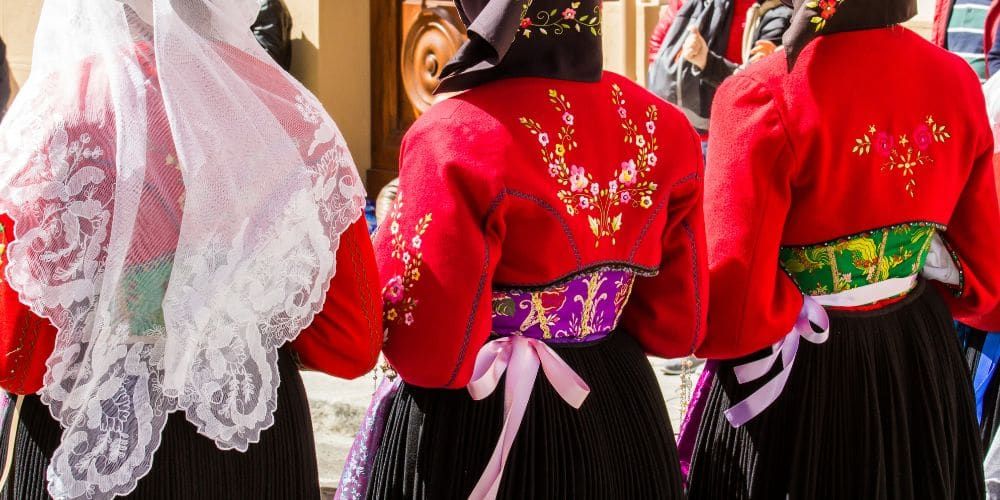
Sardinian culture is an irresistible mix of art, history, music, craftsmanship, food and wine, something unique that has endured. Even the dialect of this land is so characteristic that it is considered a language distinct from Italian. At the heart of Sardinian culture is a strong sense of identity and pride in one's roots, which have made Sardinia famous throughout the world. Thanks to the memory of the elderly, the customs handed down from generation to generation and the commitment of associations and institutional players, this immense heritage has come down to us.
One only has to attend a popular festival, such as the events of the Salude & Trigu programme of the Sassari Chamber of Commerce, to realise how deeply rooted traditions are in Sardinian culture. Enhancing these events is also the best way to promote an area in an authentic and engaging way: they allow one to come into direct contact with ancient Sardinian traditions and to discover the charm of an island that, in addition to its turquoise sea coasts, has much to tell.
Check out Salude & Trigu, the program of events in North SardiniaCantu a Tenore: symbolic event of Sardinian culture
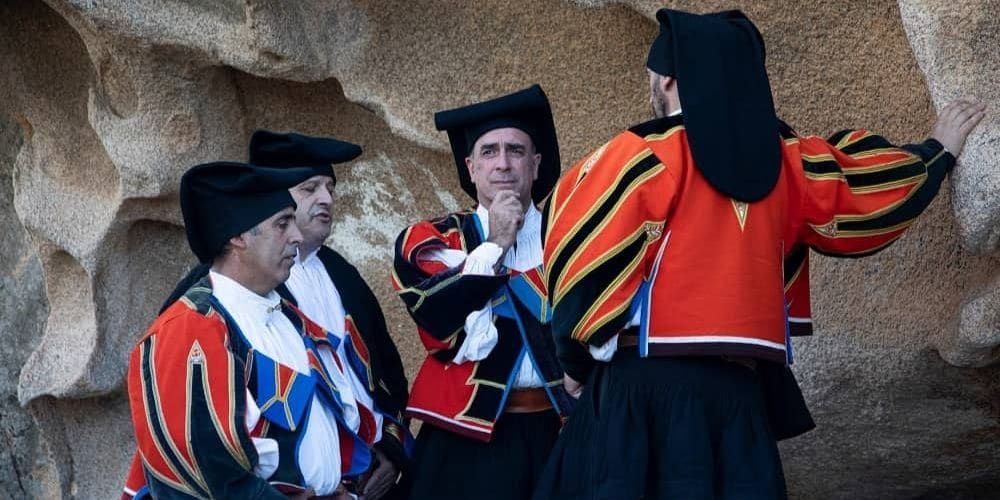
Traditional Sardinian music, both sung and instrumental, is ancient. The typical folk groups of the "Cantadoris", with their period costumes, periodically enliven the narrow streets of the historical centres. The "coros", on the other hand, are dedicated to liturgical singing and vary in number, while the "tenores" are composed of four male voices and have a repertoire of secular songs. Canto a Tenore, or "cantu a tenore" is a style of Sardinian choral singing of great importance in the local tradition, both because it is an artistic expression of an original and indigenous matrix and because it developed within the religious culture of Sardinia. It is a polyphonic singing performed by four men using four different voices, called "Bassu", "Contra", "Boche" and "Mesu Boche", which take up the verses of animals such as calves, sheep and lambs.
Standing in a circle, the soloists sing a piece of prose or poetry, which may also belong to contemporary forms of cultural expression. At the same time, the other voices make an accompanying chorus. Most of the practitioners of this song live in Barbagia and central Sardinia and perform spontaneously in bars called "su zilleri" but on formal occasions and ceremonies and during the Barbagia carnival. It is considered a unique artistic expression in the world. In 2005, UNESCO included it among the "Oral and Intangible Heritage of Humanity" and is therefore considered an intangible heritage due to its uniqueness. The song in its current form is the result of the encounter between traditional local melodies and the guitar brought to Sardinia by the Spanish.
This song has been viral since the 20th century thanks to the numerous village festivals. There are actual competitions between "cantadores", usually men, accompanied by a guitarist and often an accordionist. Many traditional instruments accompany these songs, such as drums, tambourines, accordions, guitars, and the "Launeddas".
Music: Sardinian culture meets innovation
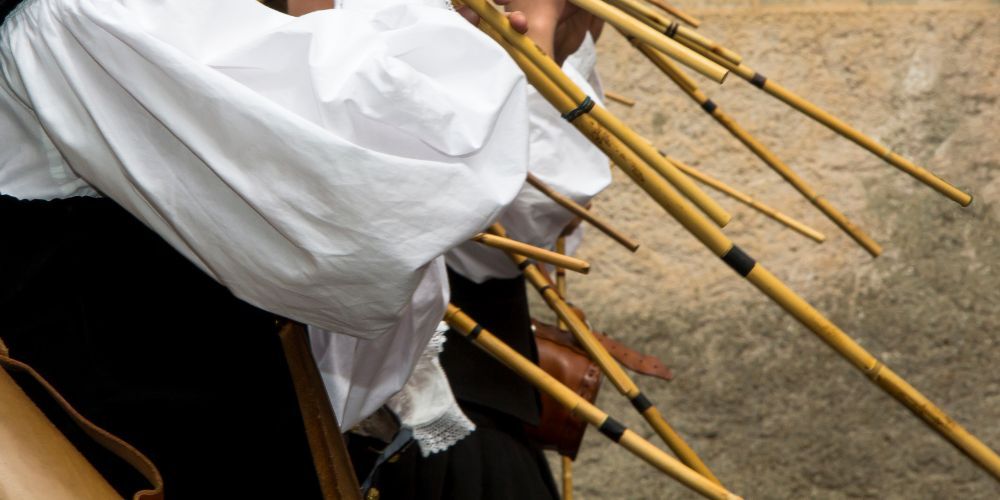
There are many occasions to listen to characteristic Sardinian music and watch performances of traditional Sardinian dances (and more), thanks to events that enliven the squares and streets of Sardinia's villages and cities, through the magic of live music, theater, dance, and many other art forms that celebrate Sardinian culture - including food and wine, which is indeed a true art here!
1. JazzAlguér
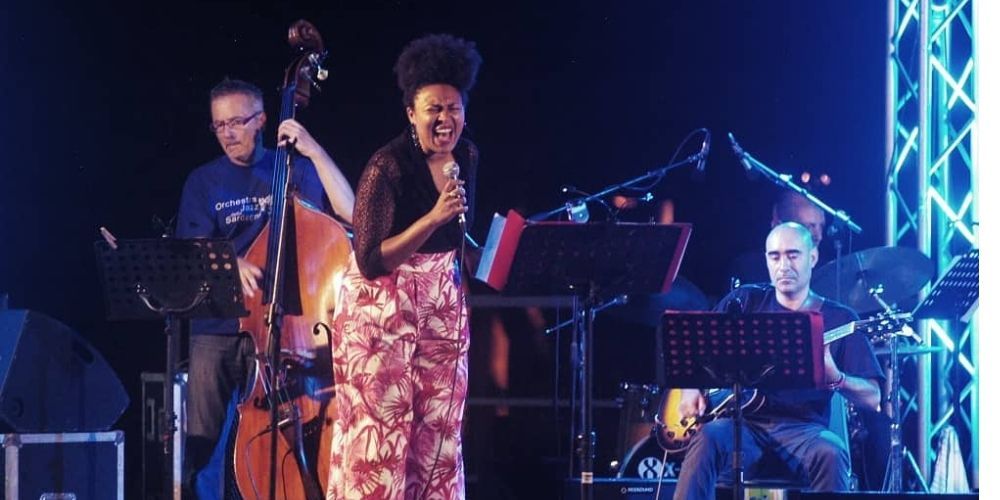
The beautiful city of Alghero offers not only uncontaminated beaches and wild nature but also a lively historical centre and an archaic language. In this charming location, a music festival with diverse offerings takes place. From April 30 to October 17 2025 JazzAlguér presents live performances by renowned names from the Italian and international music scene and offers highly engaging moments. The evenings will be framed by the spaces of Lo Quarter, in the historic heart of the town of Catalan origin in northern Sardinia, the Teatro Civico, the Nuraghe Palmavera, the Cloister of San Francesco and the Casa Gioiosa in the Porto Conte Park.
2. Musica sulle Bocche
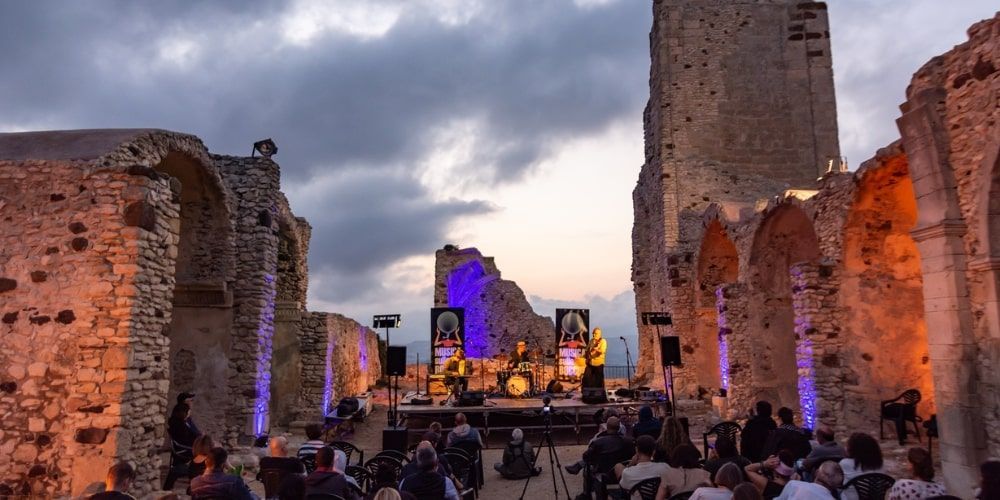
In August, North Sardinia hosts a series of concerts in dreamlike settings. The Musica sulle Bocche festival has always aimed to unite "Jazz & Green", or rather, "Music & Landscape". It is a project that brings together localities at risk of depopulation and tourist flows, playing a "Strategic Cultural Institution" role. It is a precursor of the new tourist model that has emerged in recent years, defined as Experiential Tourism. The festival programme integrates quality music, innovative proposals, environmental sustainability, natural beauty and valorisation of the territory, generating a unique experience. Because of its focus on the territory, the Festival is supported by the Sassari Chamber of Commerce thanks to the "Salude & Trigu" project.
3. Festival Internazionale Isole che Parlano and Festival di Sant Miquel
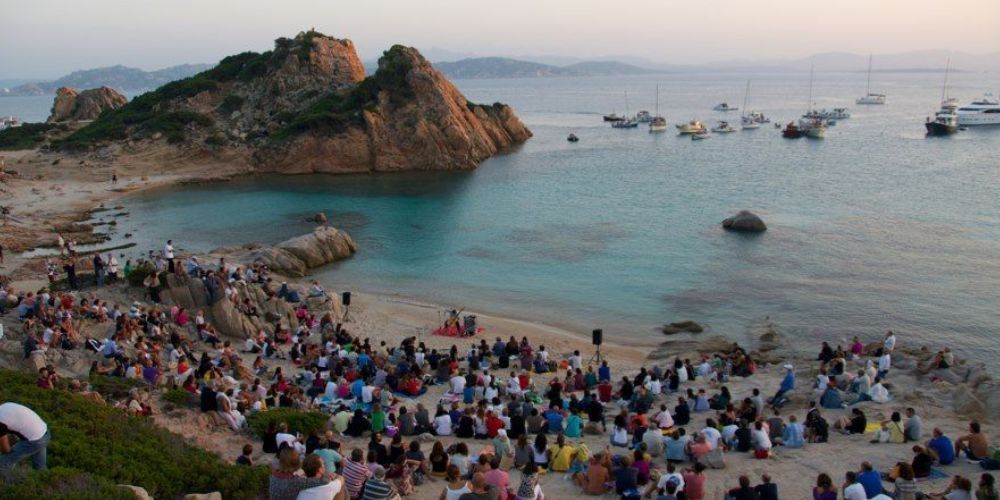
The International Festival Isole che Parlano takes place from September 6 to 14, 2025 in the beautiful surroundings of Palau and continues the search for innovation, linked to the enjoyment of art in relation to the territory. Since its first edition, the festival system has successfully combined tourism, entertainment, culture, archaeology, local products and the environment authentically. Sardinia, with its deepest roots, confronts contemporary society by drawing an ideal bridge with the world.
From September 14 to 29, 2025 the Festival of Sant Miquel is celebrated in Alghero, with a festival in honour of St Michael that is the city's patron saint. Celebration marks the climax of the summer season in the city and has become a must for visitors with its games, music and many events.
4. Premio Maria Carta
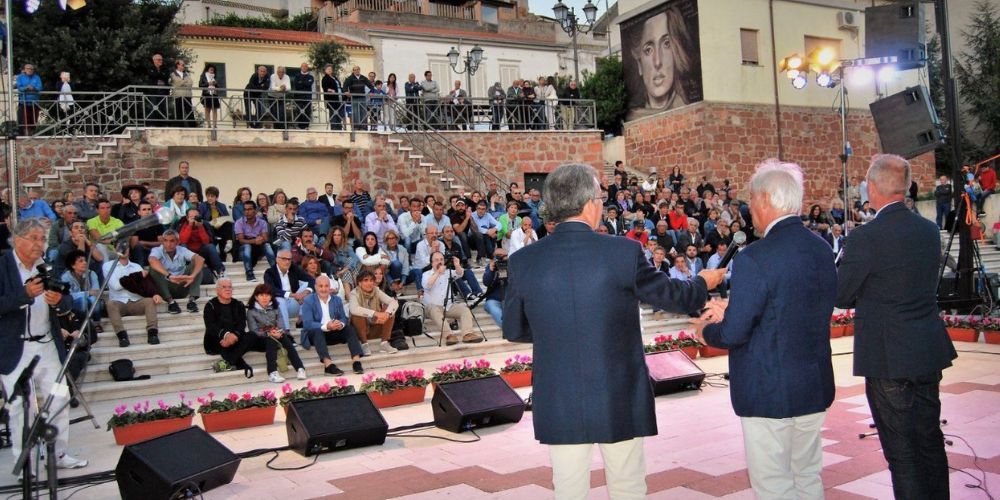
In the field of music, there is also an award created in honour of the greatest and most famous Sardinian singer-songwriter: Maria Carta. The artist managed to bring Sardinian popular music to events at the national and international levels. On September 7 2025, in Sligo, the Premio Maria Carta will be held. Born to promote and remember the artist who died in 1994, the award has expanded its scope over time. It intends to play a role in safeguarding and promoting Sardinian musical culture in its various expressions beyond tradition and to give visibility to the island's excellence in the economic sphere and the contribution of our emigrant communities around the world. Among those who have received the prestigious award over the years are Carla Fracci, Ennio Morricone, Alda Merini and Andrea Parodi, unforgettable protagonists of the Italian culture of recent decades.
Popular festivals and traditions of Sardinia
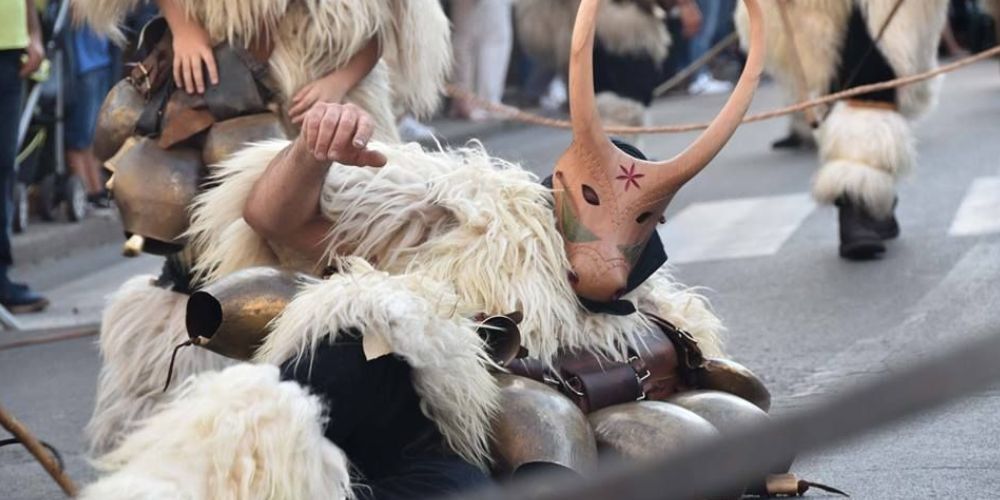
Festivals have always marked the life of island communities and are linked to the desire to reaffirm their cultural identity. In Sardinia, going to festivals means immersing oneself in ancient culture, discovering unknown sounds and harmonies, rhythmic dances with rich traditional costumes, poetic competitions out of time, reckless horse races (Sa Pariglia), and folkloric parades with precious and colourful clothes of yesteryear (the soul of Sardinian Carnival). Often the festivities last several days and involve the whole community. For the occasion, unique sweets are prepared, and banquets with traditional dishes are organised for all to partake in.
1. Primavera in Gallura
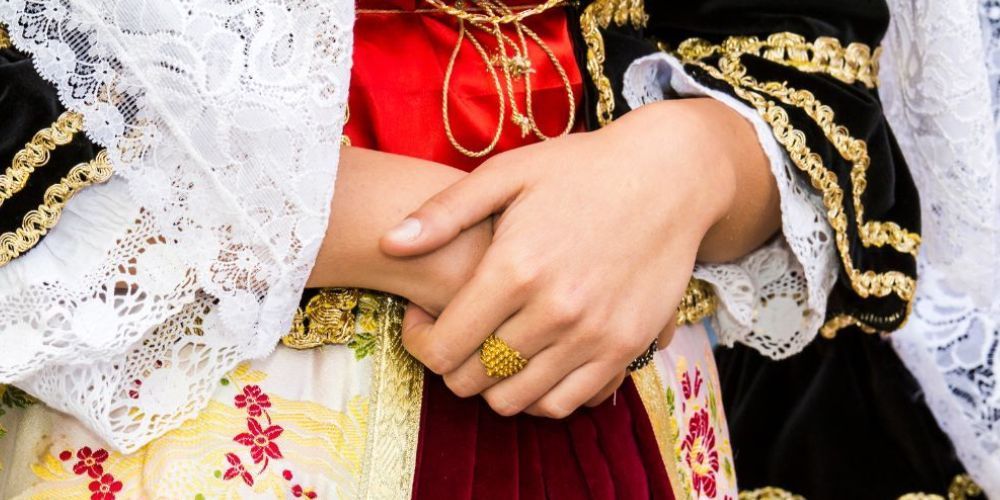
An example of a festival celebrating Sardinian folklore is Primavera in Gallura, organised by the Associazione Stazzi e Cussogghi every year in May. Gallura is the area in the northeast of Sardinia with Olbia and Tempio as its most important centres. The event aims to strengthen the tourist vocation of the Gallura area, which is recognised as an attractive destination for sustainable tourism and of great interest for local gastronomic excellence.
The inhabitants have their own language, "Gallurese", customs, traditions and a reasonably independent character. Their customs are different from the rest of Sardinia because their history, culture and relationship with the landscape and nature are different. The "Primavera in Gallura" project was launched with the aim of re-appropriating their civic, cultural and musical traditions to strengthen their sense of belonging to their community. It aims to rediscover past traces, signs, and testimonies and stimulate the younger generations' knowledge of their own history. This event also contributes to strengthening the collective perception of culture as a primary value and to making the local population and participants aware of the scientific, civic, cultural and tourist value of the historical and cultural heritage of their territory.
2. Faradda di li Candareri
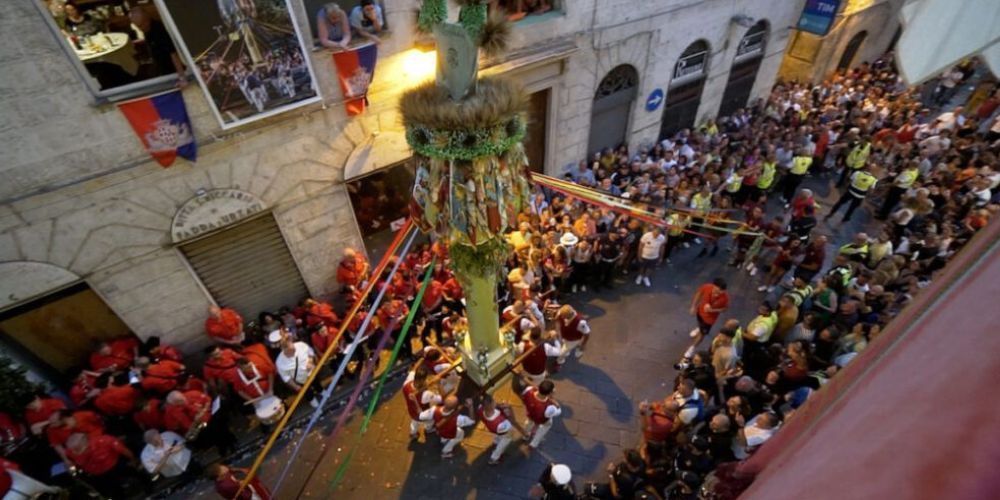
The most eagerly awaited event by the inhabitants of Sassari is the Faradda di li Candareri an event that will take place, as always, on August 14. Its origins date back to the vow that inhabitants of Sassari made to Our Lady of Assumption, asking to free them from the scourge of the plague in 1652. The Faradda, or descent, is a dancing procession involving representatives of the city's various trades, the 'gremi' of Sassari.
They carry heavy votive candles on their shoulders around the city, along Corso Vittorio Emanuele until they reach the church of Santa Maria di Betlem.
It is one of the most prestigious events in Sardinia. It is part of the Network of the Great Italian Shoulder Machines and, since 2013, has been included in the UNESCO Oral and Intangible Heritage of Humanity. The celebration is followed every year by about 120,000 people, with visitors coming to Sassari worldwide.
3. Festa della Beata Vergine della Difesa
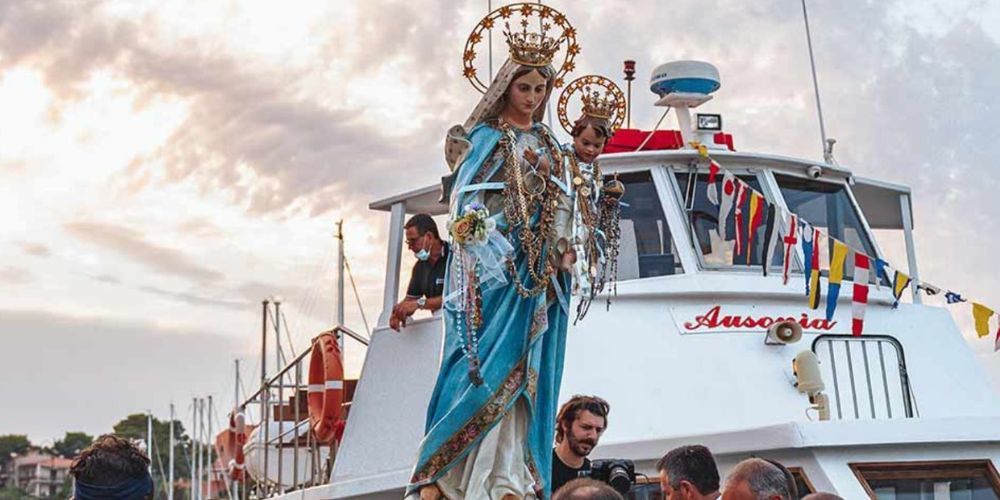
Among the main festivals in September, the Festa Della Beata Vergine Della Difesa (Feast of the Blessed Virgin of Defence) is worth mentioning. A traditional religious, cultural event is celebrated in Stintino, on the date of Mary's birth. Here, the characteristic sea procession recalls the crossing that 45 families made in 1885 from Asinara to Stintino with the simulacrum of the Virgin for the foundation of Stintino.
The Madonna della Difesa, the town's patron saint, is carried in procession on a boat. Every year, a small committee elects the "Obriere". It becomes the ceremony's grandmaster to organise the patron saint's feast and attend the main religious events with a minimum number of brothers. On these occasions, they wear the typical dress consisting of a long skirt and white shirt, with a blue cape and a cord of the same colour.
The festival takes place over a week and consists of various events and activities. Sporting events are also organised, especially for children, and musical and theatrical performances and multiple entertainments attract thousands of visitors.
4. Ittiri Folk Festa
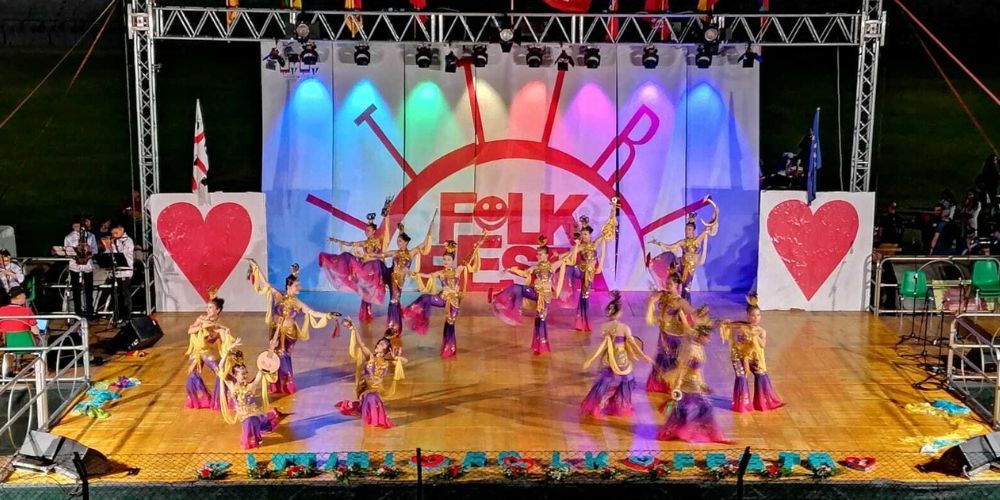
In Ittiri, near Sassari, one of the most famous events in Sardinia, the Ittiri Folk Festa, is held every year. It is the International Festival of dances from all over the world. Organised by the Ittiri Cannedu group, it hosts folk groups from all over the globe who excite all spectators through their dances, music, costumes, and colours every year.
The event, which will run rom July 17 to 22, 2025, is dedicated to traditional music and dances and sees the participation of the Ittiri folk group, joined by various Sardinian folk associations and from many other parts of the world. During the Ittiri Folk Festival, visitors can enjoy folk concerts in the streets and squares of the town, traditional dances and characteristic parades in which dozens of groups take part, bringing joy with their music and colourful costumes.
Sardinian culture amidst scents and flavours
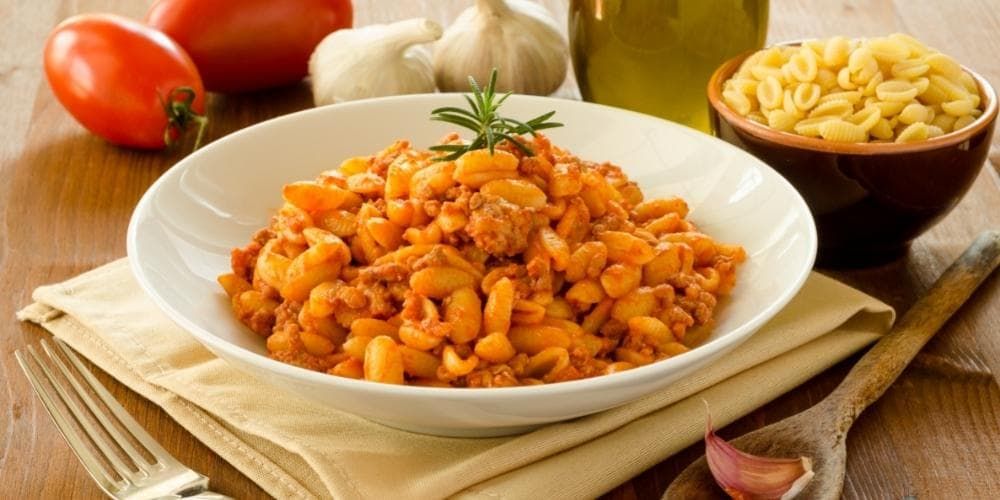
Talking about Sardinian culture also means talking about food, wine, and typical cuisine. Sardinian cuisine is based on simple and original ingredients derived from pastoral, peasant and maritime traditions. It varies from area to area, not only in the name of the dishes but also in the components used. Wild boar and pork hams, and sausages are familiar, accompanied by olives and mushrooms. Some typical first courses are the 'malloreddus', a kind of small dumplings dressed with a full-bodied sausage sauce, called 'alla campidanese', or with cheese, called 'casu furriau'.
Also typical are the 'culurgiones ogliastrini', the 'fregula', the 'zuppa gallurese' and the 'lorighittas'. Roasts are a characteristic feature, and 'porcetto' (roast suckling pig) is considered the emblem of Sardinian cuisine. Sardinian bread, also known as 'Pane Carasau', is famous everywhere. Myrtle-based liqueurs and the local brandy, called 'Filu ferru' in dialect, and the renowned red wine 'Cannonau', excellent with tasty meats, are also exquisite. Other typical products are cheeses and Sardinian pecorino cheese, appreciated for its ageing, and sweets with a unique flavour such as 'seadas' or 'papassini'.
1. Traditional Sardinian food and wine festivals
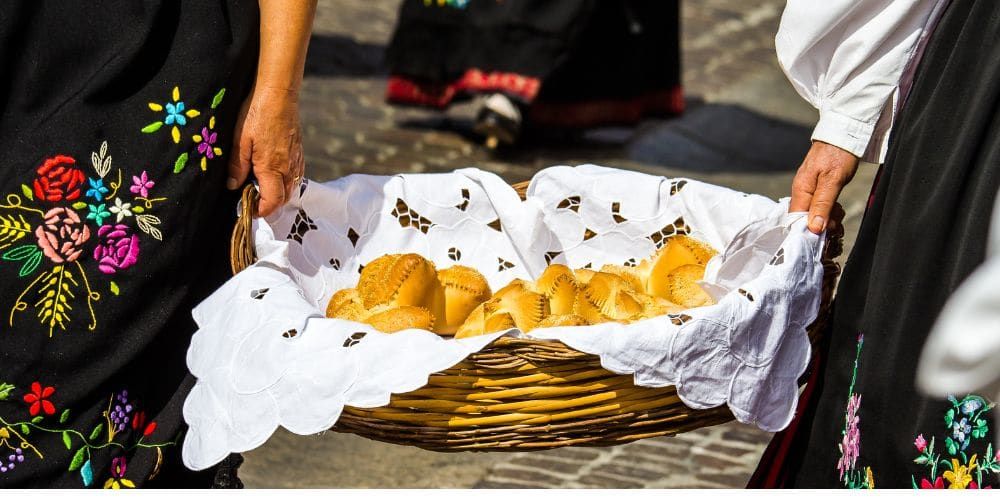
The custodians of Sardinian traditions are the festivals and numerous popular feasts, ideal occasions to taste the island's typical dishes. One example is the traditional Sagra della Cipolla Dorata (Festival of the Golden Onion) of Banari, a village in the Meilogu region, not far from Sassari. The event takes place in July and is an opportunity to taste typical dishes based on the delicious local onion, drink a good glass of wine and visit the old village.
A characteristic event of the Uri area is the Sagra del Carciofo (Artichoke Festival), in August. This identity event recalls the village's history, which has grown up with an artichoke-growing vocation since the mid-eighteenth century and has increased its number of visitors exponentially over the years. The quality of the event and the right mix of food and wine, folklore, tradition have created an event that is eagerly awaited not only by the Uri community but, above all, by tourists. In fact, it allows visitors to visit the most representative places in the town, such as churches, ancient dwellings, exhibitions and craft workshops that recall old trades.
2. Autumn flavours of Sardinian traditions
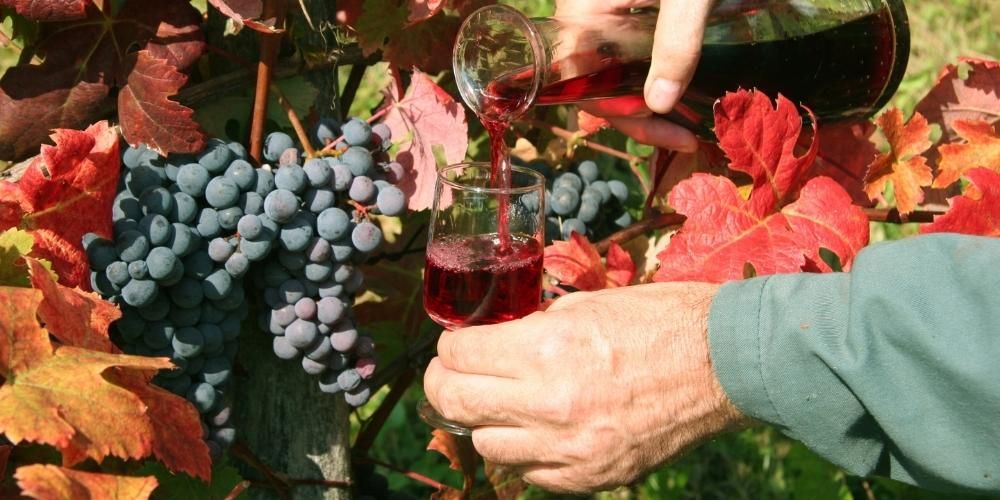
In Sassari, from December 10 to 17 2025, the event Weekend Dei Gusti, delle Arti e dei Mestieri will be back. This event was born in 2006 to promote the culture of taste, showing the experiences of street food typical of the city of Sassari. It helps to promote commercial businesses, contributing to broadcast from a touristic point of view the city, its gastronomical tradition and its most charming corners. It is one of the most important events of the island dedicated to the valorization of the agro-alimentary production and the gastronomic tradition, particularly of the city of Sassari and its territory. It has always taken place in the city's heart, among the alleys, the stores, the restaurants, the clubs, the trattorias of the historical city centre.
In the flat hinterland of northwest Sardinia, in the historical region of Logudoro and about 10 km from Sassari, lies Usini. The hamlet is renowned for producing artichokes such as Spinoso di Sardegna DOP, extra-virgin olive oil, a member of the National Association "Città dell'Olio" (Towns of Oil) and wine much so that it is part of the "Città del Vino" (Towns of Wine). Dedicated to the "nectar of the Gods", among the events stands out, Ajò a Ippuntare, an exhibition dedicated to new wine, which takes place in December.
If you are looking for a full immersion in the discovery of Sardinian culture, we have given you many hints that will make you appreciate an authentic population living in wonderful places and preserving millenary traditions.
Popular culture Sardinia: FAQ and advice
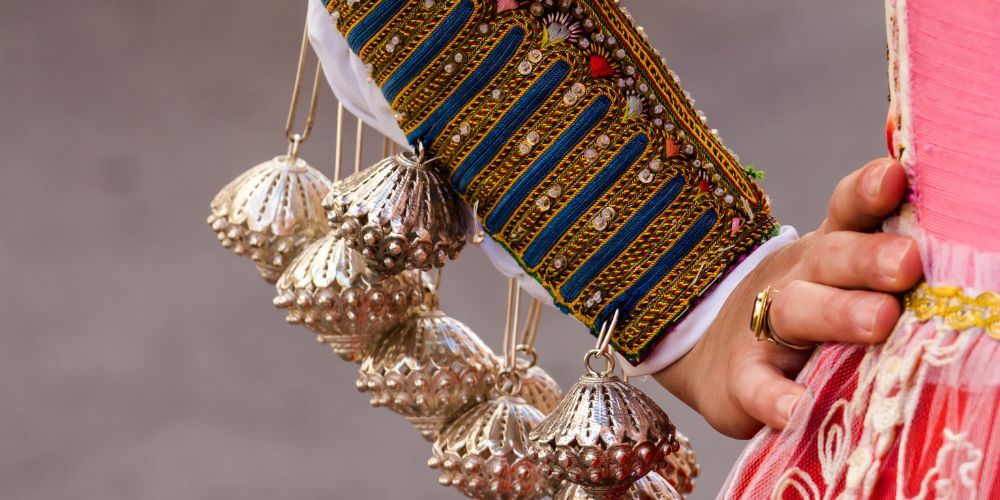
Why is Sardinian culture unique compared to other local Italian cultures?
The uniqueness of Sardinian culture compared to the rest of Italy is due to multiple historical, geographical and socioeconomic factors. The rich mosaic of traditions, customs and folklore that can be experienced today in every corner of the island is the result of millennia of interbreeding among the peoples who have inhabited and crossed the Mediterranean - Phoenicians and Romans in antiquity, and especially the Spanish since the Middle Ages - each with its own cultural heritage of spoken languages (and their associated sounds and meanings), social customs, beliefs and religious faiths. Contemporary Sardinian culture, closely rooted in the agro-pastoral dimension of its past, perfectly reflects all its historical influences, a world to discover through the arts, such as folk music and dance, traditional crafts, food and wine and the fascinating perspective from which all religious festivals are celebrated, always hanging on a fine line between sacred and profane.
What are the top opportunities to discover the best of Sardinian culture?
Exploring Sardinian culture means coming into direct touch with its people and its land, a practice that takes shape year-round thanks to the many traditional events promoted by the Chambers of Commerce, in collaboration with the main cities and, especially, the smaller towns from the coast to the hinterland. Among these Salude & Trigu stands out, a program of events spanning all of North Sardinia (and beyond) with the aim of showcasing the vast local cultural landscape, with a strong focus on musical events, folk festivals, outdoor recreational activities and food and wine festivals. Whether it's summer or winter, spring or fall, Sardinia always offers excellent opportunities to experience unique events and discover the island's most authentic side.
About the author
Written on 06/06/2024



Marialuisa Monfreda
Immerse yourself into folk culture and traditions of Sardinia, told through the most important festivities by music, dances and gastronomy.